
- Everything to Know about What is Literary Tourism
- Blue Rose Recommends
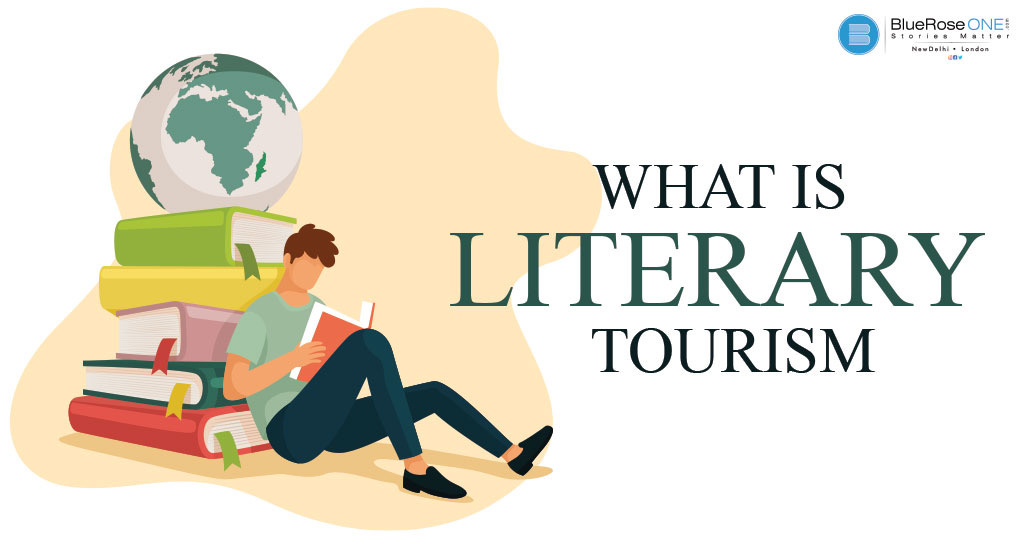
Literary tourism, a niche within the broader spectrum of travel, offers a unique and enriching experience for book lovers and literary enthusiasts. It involves visiting places associated with literature, whether they are the settings of beloved novels, the homes of renowned authors, or the locations that inspired literary masterpieces.
Read: Everything to Know about Pragati Maidan New Delhi World Book Fair 2024, New Delhi.
As we delve into the world of literary tourism, we discover how the realms of fiction and reality intertwine, creating a captivating tapestry that beckons readers to step into the landscapes of their favourite books.
Here’s a list of 7 pointers to keep in mind for literary tourism:

Literary Landscapes: Exploring Fictional Worlds
- Author’s Abode: Literary Pilgrimages to Author’s Homes
Literary Festivals: Celebrating the Written Word
Bookish cities: urban centres of literary excellence, preserving literary heritage: libraries and archives, challenges and controversies in literary tourism, the future of literary tourism: nurturing a love for reading.
One of the most enchanting aspects of literary tourism is the opportunity to traverse the landscapes that exist within the pages of beloved novels. From the rolling hills of J.R.R. Tolkien’s Middle-earth to the bustling London streets of Arthur Conan Doyle’s Sherlock Holmes mysteries, literary tourism allows readers to immerse themselves in the fictional worlds that have captured their imaginations.
Take, for instance, the magical realm of Harry Potter. The Wizarding World, created by J.K. Rowling, has become a pilgrimage site for fans worldwide. The bustling Diagon Alley and the iconic Hogwarts School of Witchcraft and Wizardry, though products of Rowling’s imagination, have found tangible form in places like the Warner Bros. Studio Tour in London and the Wizarding World of Harry Potter theme parks.
Author's Abode: Literary Pilgrimages to Author's Homes
Literary tourism extends beyond the realms of fiction to the very homes and haunts of revered authors. Visiting the residences of literary giants provides a unique glimpse into the environments that shaped their creative processes. The Brontë Parsonage Museum in Haworth, England, allows visitors to explore the home where the Brontë sisters penned their timeless classics such as “Wuthering Heights” and “Jane Eyre.”
Similarly, the Mark Twain House and Museum in Hartford, Connecticut, offers a fascinating insight into the life of Samuel Clemens, better known as Mark Twain. The rooms where Twain crafted his iconic works are preserved, giving visitors an intimate connection to the author and his creative journey.
Literary tourism is not confined to physical locations; it also encompasses the vibrant realm of literary festivals. These events serve as bustling hubs where authors, readers, and literary enthusiasts converge to celebrate the written word. Festivals like the Hay Festival in Wales and the Jaipur Literature Festival in India have gained international acclaim for their ability to foster a shared appreciation for literature.
Literary festivals provide a platform for authors to engage with their audience, offering book signings, panel discussions, and readings. Attendees, in turn, have the chance to interact with their favourite writers, gaining deeper insights into the creative process and the inspiration behind their works.
Certain cities around the world stand as veritable meccas for bibliophiles, boasting rich literary histories and vibrant book cultures. Paris, often referred to as the “City of Light,” was home to expatriate writers like Ernest Hemingway and F. Scott Fitzgerald during the 1920s. Exploring the streets of Montmartre or sitting in cafes that once hosted these literary luminaries provides a tangible link to the past.
In Dublin, the literary legacy is woven into the fabric of the city itself. The Dublin Writers Museum and walking tours dedicated to James Joyce’s “Ulysses” allow visitors to trace the footsteps of the city’s literary greats. Meanwhile, Edinburgh, with its mediaeval charm, is the birthplace of J.K. Rowling’s Harry Potter series, and the cityscape is dotted with locations that inspired the magical universe.
You may also like: 7 Top Rated Self-Help Books of all time in 2024
Libraries and archives play a crucial role in preserving literary heritage, and they, too, become destinations for literary travelers. The British Library in London houses an extensive collection of manuscripts, rare books, and literary treasures. From the original manuscript of Lewis Carroll’s “Alice’s Adventures in Wonderland” to handwritten lyrics by The Beatles, the British Library offers a tangible connection to a diverse array of literary and cultural phenomena.
Similarly, the Library of Congress in Washington, D.C., stands as a beacon of knowledge. Its impressive collection includes the personal library of Thomas Jefferson, reflecting not only the literary tastes of a founding father but also the intellectual currents that shaped the early United States.
While literary tourism offers a myriad of enriching experiences, it is not without its challenges and controversies. The delicate balance between preserving the authenticity of literary sites and meeting the demands of tourism can pose a threat to the very essence that draws people to these places. Issues such as overcrowding, commercialization, and the potential degradation of historic sites require careful consideration to ensure the longevity of literary tourism as a meaningful venture.
Moreover, the interpretation of certain literary works or the lives of authors may be contentious. Sites associated with authors who hold controversial views or whose works have been reevaluated in modern contexts can spark debates about the ethics of literary tourism. Striking a balance between acknowledging the historical context and fostering a space for critical reflection is essential to navigating these complex issues.
As we gaze into the future of literary tourism, there is immense potential to harness its power in fostering a love for reading. Initiatives that promote literacy, education, and cultural exchange can be seamlessly integrated into literary tourism experiences. For instance, partnerships between schools and literary sites can provide students with unique learning opportunities, connecting classroom studies with real-world experiences.
Additionally, the digital realm opens new avenues for literary tourism. Virtual reality experiences, online book clubs, and interactive platforms can extend the reach of literary tourism to a global audience. Whether someone is halfway across the world or just a few miles away, the magic of literary exploration can be shared and celebrated through digital mediums.
Read: Amazon Ads for Authors: How Authors Can Promote Their Books Through Amazon Ads
In conclusion, literary tourism transcends the boundaries of traditional travel, inviting individuals to embark on journeys that intertwine fiction and reality. From the fictional landscapes of beloved novels to the homes of literary greats, from bustling literary festivals to bookish cities, each facet of literary tourism contributes to a rich tapestry that celebrates the written word.
While challenges and controversies may arise, the enduring appeal of literary tourism lies in its ability to kindle a passion for reading, foster cultural understanding, and provide a bridge between the past and the present. As we navigate the landscapes of literature, we discover that the magic of storytelling extends far beyond the pages of a book—it lingers in the places, the people, and the shared experiences that make literary tourism a truly enchanting endeavor. So, whether you’re tracing the footsteps of your favourite characters or standing in the study where a classic was penned, literary tourism invites you to unveil the magic of literary exploration.
You may also like: Publish your book with Amazon Self-Publishing in 2024
- About The Author
- Latest Posts
Manan Sahni

You May Also Like

Leave a Reply Cancel reply
Your email address will not be published. Required fields are marked *
Save my name, email, and website in this browser for the next time I comment.
- Craft and Criticism
- Fiction and Poetry
- News and Culture
- Lit Hub Radio
- Reading Lists

- Literary Criticism
- Craft and Advice
- In Conversation
- On Translation
- Short Story
- From the Novel
- Bookstores and Libraries
- Film and TV
- Art and Photography
- Freeman’s
- The Virtual Book Channel
- Behind the Mic
- Beyond the Page
- The Cosmic Library
- The Critic and Her Publics
- Emergence Magazine
- Fiction/Non/Fiction
- First Draft: A Dialogue on Writing
- The History of Literature
- I’m a Writer But
- Lit Century
- Tor Presents: Voyage Into Genre
- Windham-Campbell Prizes Podcast
- Write-minded
- The Best of the Decade
- Best Reviewed Books
- BookMarks Daily Giveaway
- The Daily Thrill
- CrimeReads Daily Giveaway
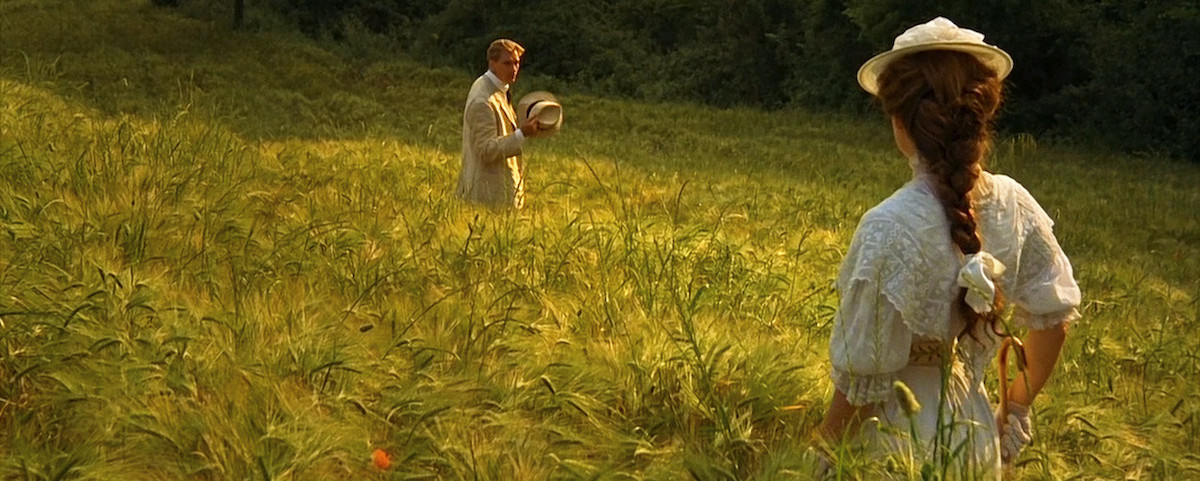
The Joys (and Perils) of Literary Tourism
Laura barnett on seeing another country through fiction.
It began with Gerald Durrell, a trip to Greece, and a slaughtered lamb.
I was seven years old; my mum—exhausted from a demanding full-time job and a no less demanding full-time daughter—was taking us to the tiny Greek island, an hour’s boat-ride from Rhodes, where she hoped we might spend a peaceful Easter holiday.
We did. We ate crumbling spanakopita from the bakery on the harbour; walked the long, dusty path to the beach; and spent hours absorbed in our favorite shared activity: reading. She’d suggested I bring along Durrell’s My Family and Other Animals , and I, an animal-obsessed child, was entranced: there was Greece, the country I was visiting, coming alive on the page, in all its bohemian glamour and faunal chaos.
Inspired by Durrell’s menagerie—as I recall, Achilles, his strawberry-eating tortoise, made a particular impression—I befriended the lamb I found tethered to a tree outside an islander’s home. I gave this lamb a name (sadly, that has been lost to the mists of time); I fed it carrots. Its owner, a grinning, toothless old woman in a loose black dress, would come out to join us, offering encouragement in her incomprehensible language. The lamb liked me—I could tell. I saw myself, like the young Durrell, as a fledgling naturalist, able to communicate wordlessly with animals; my future career as a veterinarian seemed assured.
And then, one day (Good Friday—those familiar with Greek island culture may anticipate what’s coming), I tripped happily along to feed my friend the lamb, and found its stripped carcass hanging from the tree. The old woman, still grinning, came out to offer me some soup—a special Easter delicacy, my mum and I gathered—in which the lamb’s eyeballs were floating like peeled lychees. I screamed. I ran. I became a vegetarian, and would remain one for the next ten years (I was, like so many, eventually undone by the irresistible scent of a barbequing hamburger).
Disturbing as this incident was, I remember it chiefly, now, for setting a precedent that continued through my childhood, and into my adult life: my fascination with what I might usefully call “literary tourism”—with seeking out, whenever I travel, fiction set in the place I am visiting.
I don’t mean travel guides, or travel writing—illuminating and useful as these can be—but novels: fictional renderings that offer us another person’s perspective on a place, even as we are, through travel, forming that perspective for ourselves. It’s not armchair travel, either—that wonderful experience of visiting places, real or imagined, in books, without leaving the comfort of our living-room—but real-time travel, accompanied by a remarkable literary companion whose knowledge of the places we are passing through is far superior to our own.
For though I never quite got over the shock of being confronted with that dead lamb (even now, 26 years later, I still picture its naked, dripping body, and shudder), I continued to love Durrell. His Corfu trilogy accompanied me through the annual Greek holidays my mum and I took over the next few years, and I have never lost that early desire to see the place I was visiting reflected, in new and unexpected ways, on the page.
Living in Rome for a year while studying Italian and Spanish at university, I devoured the Italian-set novels of Henry James and E.M. Forster. I read Hemingway in Spain; Hans Fallada in Berlin. On my honeymoon, which my husband and I spent driving from Cape Cod to Maine, I took a selection of my favorite New England novelists: John Irving; Richard Russo; Elizabeth Strout.
For a recent trip to the American Booksellers’ Association Winter Institute in Denver, Colorado, I packed several books by the late Colorado-based author, Kent Haruf. Preparing for my first visit to Australia to attend the Perth Writers’ Festival last February, I sought out Cloudstreet by Tim Winton—that irrepressible, sprawling novel tracing the intertwined fates of two working-class West Australian families.
I am far from alone in this, of course. Many fellow authors, readers and friends have admitted that they are also keen literary tourists. My mum (from whom I have acquired so many of my reading habits) is one, too, though a recent cruise from England to Holland, Iceland and the Faroe islands proved a challenge. Asking our excellent local bookseller, Jonathan, to recommend a contemporary Icelandic novel to take with her, he said, “How do you feel about murder?”
Her answer? “Not so great.” Scandi-noir, wonderful as it is, might not, after all, be quite what you feel like taking on holiday: that romantic evening in Reykjavik could acquire quite a different atmosphere when your mind is filled with dark-skied menace, and you’re half-expecting a crazed murderer to jump out from the next corner.
That leads me to what is both the main pleasure and pitfall of literary tourism: that the version of a place depicted in a novel will undoubtedly not entirely fit the view from your car window or hotel room. That, of course, is exactly why I, and many like me, choose to enhance our understanding of that place through fiction.
A novel allows us to see the world through another’s eyes; sometimes, that vision will be disturbing, and it is certainly unlikely to fit the smooth, sanitized version presented by a travel company or guidebook, or even the benign clichés we may be carrying in our own mind. It’s like TripAdvisor, without any of the weird obsessives who’ve taken 20 photographs of the hotel toilet.
That’s not to say that the literary tourist won’t encounter his or her fair share of the weird and wonderful. Before my first trip to Cuba, my stepsister lent me her copy of Pedro Juan Gutierrez’s The Dirty Havana Trilogy , which opens, as some readers may be aware, with a frank and graphic depiction of some rather sweaty and acrobatic sex. I wasn’t naïve enough to take this as indicative of the sexual customs of all Cubans, but the novel certainly opened my eyes to a certain febrile atmosphere, a certain sensual languor, of which I would probably otherwise not have been aware.
There are times, of course, when a fictional depiction of a place can be plain misleading: watch too many episodes of The Wire , and you’d be forgiven for being far too terrified ever to set foot in Baltimore, though Anne Tyler’s novels—of which I am a dedicated fan—offer a palate-cleansing corrective to that bleak vision of what I now know to be, in the main, rather a charming city.
And a series of contemporary Italian novels I read as part of my degree, by a group of young authors known, since the mid-90s, as the “ giovani cannibali ” (“young cannibals”), blew apart all the romantic images of Italy I’d formed under the tutelage of Forster and James. These novels, informed by consumerism, pulp fiction and splattercore films, take a cartoonish, hyperreal view of Italian life that would forever alter my assumptions about what was going on inside those elegant, shuttered palazzi. One chapter ended with a man murdering his wife, decapitating her, and filling her hollowed-out skull with the contents of a bottle of premium-brand shampoo. Now that’s something you don’t get in A Room With a View .
There is a distinction to be drawn between seeking out novels written by outsiders (usually English-speaking), and those penned by natives. I will admit that I am, like many Anglophones, mainly drawn to the former, and don’t read as much literature in translation as I ought, and would like, to. There is something particularly appealing, when traveling, about reading an outsider’s perspective—the writer and his or her protagonist stands, in that case, in our own shoes, as a tourist or traveler.
But it is only in the authentic literature of that place and language that we can really gain a sense of what it means to live there—so it’s encouraging, here in the UK, to see so many new English translations of key non-English language fiction being published. We English-speaking literary tourists will have a far wider selection, in future, of books to stow in our suitcases.
Then, however, there is the danger of disappointment—of realizing that the version of a place we have so treasured through the work of a particular novelist is not necessarily one held dear by that city or country’s residents. I was shocked to discover, on meeting my husband’s family in Maryland for the first time, that none of them had ever read any Anne Tyler, despite living just ten miles away from Baltimore (I have corrected this omission by foisting a different Tyler novel on them each time we visit).
And when I mentioned my love for Kent Haruf to people I met in Denver (not the publishers and booksellers, I should add, but the shop assistants and baristas I got talking to), I was as likely to receive a blank stare, and the question, “Who?,” as I was to see a nod of happy recognition. How , I wanted to shout at them, can you live here, in Colorado, and not be familiar with the writing of Haruf, in which your cities, your mountains, your flatlands, are so eloquently, so precisely and poignantly, described?
But I didn’t shout, of course—and not only because I am British, and politeness is imprinted on my DNA. I didn’t because that is my version of the state, my exercise in literary tourism: for those who actually live in Denver, there are as many versions of the place as there are snowdrifts on the Rockies.
I came across something recently that strikes me as a useful analogy for all this. Here in my home city, the Museum of London has designed an app that enables users to map historic photographs over their cameraphone’s view of the same street or landmark, creating a slippage between the present and the past. Literary tourism works in much the same way. Through fiction, we map another perspective on a place over the one we are forming, in real time, through our own eyes; and we are offered the unique opportunity to observe, as we travel, how much is the same, and how much is thrillingly, intriguingly different.
The Versions of Us is published by Houghton Mifflin Harcourt.
- Share on Facebook (Opens in new window)
- Click to share on Twitter (Opens in new window)
- Click to share on Google+ (Opens in new window)
- Click to share on LinkedIn (Opens in new window)
- Click to share on Reddit (Opens in new window)
- Click to share on Tumblr (Opens in new window)
- Click to share on Pinterest (Opens in new window)
- Click to share on Pocket (Opens in new window)

Laura Barnett
Previous article, next article, support lit hub..

Join our community of readers.
to the Lithub Daily
Popular posts.
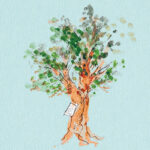
Follow us on Twitter
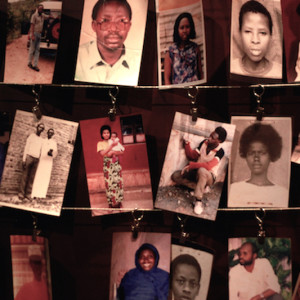
Half-Truth and Reconciliation: After the Rwandan Genocide
- RSS - Posts
Literary Hub
Created by Grove Atlantic and Electric Literature
Sign Up For Our Newsletters
How to Pitch Lit Hub
Advertisers: Contact Us
Privacy Policy
Support Lit Hub - Become A Member
Become a Lit Hub Supporting Member : Because Books Matter
For the past decade, Literary Hub has brought you the best of the book world for free—no paywall. But our future relies on you. In return for a donation, you’ll get an ad-free reading experience , exclusive editors’ picks, book giveaways, and our coveted Joan Didion Lit Hub tote bag . Most importantly, you’ll keep independent book coverage alive and thriving on the internet.

Become a member for as low as $5/month
At WiseTour, we're committed to delivering accurate, trustworthy information. Our expert-authored content is rigorously fact-checked and sourced from credible authorities. Discover how we uphold the highest standards in providing you with reliable knowledge.
Learn more...
What Is Literary Tourism?
Literary tourism is the practice of visiting cities and sites related to works of fiction and their authors. Combining literature with travel and cultural experiences, literary tourism is by no means a recent occurrence and has been practiced for several centuries. The use of electronic devices for participating in the literary tourism experience has become popular and has added some new twists to this form of tourism.
An interest in traveling to places associated with poets and novelists grew in the 19th century, when according to historical accounts, curious travelers began visiting the homes, graves and favorite haunts of famous writers. Travelers also visited the sites and cities described in famous poems and novels. During this time, Stratford, England was memorialized for Shakespeare , while Abbotsford, England, was venerated for Sir Walter Scott. The Bronte sisters were remembered for their home at Haworth, England.
Crossing the boundaries between literature and cultural studies, literary tourism invites readers to make fictional experiences come alive. Literary tourism enables travelers to immerse themselves in the local culture, while increasing their knowledge about authors and literature. To cater to the tastes of this specialized group of travelers, many cities have taken advantage of this phenomenon by creating walking and cycling tours of famous writers' homes, the places where they wrote, and taverns they may have visited.
For example, London , England, has tours that honor Arthur Conan Doyle's Sherlock Homes . One tour includes a house dedicated to fictional characters from the novel. In Ireland, a Dublin Literary Pub Crawl invites tourists to walk in the shoes of writers like James Joyce, Oscar Wilde, George Bernard Shaw and W.B. Yeats. The walking tour is guided by actors, and guests are invited to participate in a literary quiz with prizes.
The development of electronic devices for reading books has sparked new innovations in literary tourism, with authors writing novels that offer readers the option of a virtual travel experience or a new way to enjoy a travel destination. Travel guides in some of these novels allow the reader to visit sites remotely or gather information for a vacation. Some electronic literary tourism novels encourage the readers to visit a city by involving them in a game in which points are given for visiting different locations. An example is a novel by the Japanese author Higashi Moriyama, who has partnered with the city of Kyota, Japan, to draw tourists to the city.
AS FEATURED ON:

Related Articles
- What Is Electronic Literature?
- What Is the Connection between Literature and History?
- What are Electronic Publications?
- How can I Become a Better Reader of Shakespeare?
- Who is Oscar Wilde?
Coimbra as a literary tourism destination: landscapes of literature

2020, International Journal of Culture, Tourism and Hospitality Research
Purpose The purpose of this paper is to demonstrate the relevance of developing literary tourism in Coimbra. Design/methodology/approach This exploratory qualitative research identifies existent resources and development potential of literary tourism. The instruments of data collection were bibliographic research, questionnaires, interviews and participant observation. Findings There are few literary tourism products in Coimbra, which contrasts with the number of literary places identified, namely, on the left bank of the River Mondego. Tourism development stakeholders in Coimbra have not paid enough attention to the emergence of literary tourism and the opportunities for the development of new sustainable cultural products related with it. Research limitations/implications This study is limited by the size and continual renewal of the corpus, which implies a constant updating of data regarding authors and texts. Practical implications This study will lead to the production of a dat...

Related Papers
The potential of literature in creating tourist experiences in Portugal (Atena Editora)
Atena Editora
Tourist destinations tend to bet more and more on niche products that attract visitors who want to live a unique, enriching and differentiating experience. Art, culture and literature are intrinsic elements of each destination, with the potential to be explored, either independently, or in conjunction with other endogenous products, such as gastronomy or wine. In any case, learning and immersion in the local culture are at the base of the motivations of the visitors who seek them out. In Portugal, several regions bet on the uniqueness of their endogenous products, allied to literature, organizing itineraries, events or festivals. The house-museums of a particular author, the literary hotels, the cafes that evoke memories of literary gatherings are stages for these initiatives. This article explores the relationship between tourism and literature, based on the assumption that both the work and the life of a writer can serve as a basis for the creation of itineraries and literary places capable of enhancing tourism in the places where they will be developed, promoting an intercultural experience and the perpetuation of the memory of works and authors. Combining literature with endogenous products, such as gastronomy or wines, is another potential explored in Portugal, in the sense of providing a differentiating, sustainable experience that stimulates the senses of its visitors, which will be addressed in this article.
Proceeding of The International Conference on Literature
Made Suyasa
Chiara Martino
Literary tourism is a type of cultural tourism that deals with places related to the lives and the works of writers. Starting from a corpus analysis, this dissertation shall illustrate the manipulative techniques of the language employed in literary tourism websites. In the first part of this paper, some brief theoretical information will be given, since literary tourism has a quite long history and has already been studied by a large number of scholars. In the second part, a small corpus of texts collected from websites about this topic shall be examined. Firstly, the method used for this research will be described and secondly, the results will be presented. The third and last part of this work, then, concerns the analysis of two pictures and of a particular extract taken from one of the texts used for the corpus. Finally, the conclusion will explain the choice of the title given to this paper and will summarize the most common techniques used by tourism stakeholders in order to lure possible tourists into buying what they offer .
ENLIGHTENING TOURISM A PATHMAKING JOURNAL
Jordi Arcos-Pumarola , Eugenio Sacar
This article reviews the literature on literary tourism between 1983-2019. It has a double objective: on the one hand, it aims at gathering a comprehensive perspective into the quantity and evolution of studies on literary tourism and, on the other hand, identifying lines of research and the main objects of study within the research on literary tourism. The latter will allow us to identify what trends have been followed when analyzing literary tourism, both methodologically and conceptually. To answer these objectives, the article structures its literature review in two phases: a descriptive analysis and a thematic analysis. From this starting point, the article will present a number of challenges for future research on literary tourism, both at a methodological and content-related level, emphasizing the use of quantitative methodologies to approach this touristic type, analyzing the role of literary tourism in touristic destinations as well as focusing on the pedagogical needs of tourists in order to facilitate their access to literary tourism.
Alexandra Zbuchea
Literary tourism is a peculiar form of old tourism that seems to benefit from renewed interest. Besides the relevance for tourists choosing this form of travel, literary tourism can generate positive benefits for many economic and social actors. It can significantly contribute to the branding of places, such as in the case of the famous Dracula. Considering this, the present study aims to map the existing knowledge on literary tourism following a literature review. Several items are considered: the evolution of the academic interest in literary tourism, the main lines of investigation, the geographical distribution of the mainstream literature, the types of outlets used to disseminate the research, the authorship and co-authorship, as well as the impact of the research. The study shows that academic studies in literary tourism are a nascent field of investigation, with the number of studies increasing mainly in the past few years and the narrow geographic distribution. Also, most publications are articles based on case studies and narrative literature reviews. Older studies focus on more abstract themes such as the history of tourism and perceptions related to heritage, while the more recent studies are more interested in tourism forms and destinations. We find a wide heterogeneous and rather shallow investigative approach. The investigation also highlights that literary tourism could be a successful path to destination development.
cornelia petroman
Literary tourism, niche tourism and form of cultural tourism, contributes to the sustainable development of some destinations in areas that have literary resources, places where they were born, temporarily lived or where are sites or places of pilgrimage of some personalities of national or universal literature. Literary tourism of conferences, of paying homage’s to writers on different occasions or simply pilgrimage to funerary monuments or sites where they happened events described in literary works, memorial houses and museums in the analyzed area, contributing in addition to sustainable development of communities to the development of literature by understanding the events, places under commercial terms, contributing to the formation of some tourist brands by selling souvenirs, movies, books. Besides promoting some sites, besides the cultural act strictly literary this form of niche tourism, intelligent tourism contribute to the sustainable development of the regions through li...
Charles Mansfield
Working Definitions in Literature and Tourism
Harald Hendrix
Working definition of "Tourist Literature", in: Silvia Quinteiro, Maria Jose Marques, eds., Working Definitions in Literature and Tourism, Lisbon, CIAC, 2022, pp. 137-138
Key Concepts in Literature and Tourism Studies
Sílvia Quinteiro , Rita Baleiro
Literature and tourism studies are an emerging research area. Therefore, there is much to be done, as it is important to develop a theoretical body and define a methodology. ln this context, we have decided to write this book with the aim of contributing to the definition of literature and tourism studies as an autonomous scientific area. So, first, we set the conceptual framework for both literature and tourism, and then we proceed to describe the corpus and the key concepts of this research cluster. We hope this book will become an easy-to-use tool for use both in the classroom, as well as in an autonomous study context. ln both cases, we would like our text to be a source of information and a starting point for a discussion on each of the topics covered. We also hope to encourage our readers to further expand interdisciplinary research in literature and tourism.
Journal of Tourism, Heritage & Services Marketing
RELATED TOPICS
- We're Hiring!
- Help Center
- Find new research papers in:
- Health Sciences
- Earth Sciences
- Cognitive Science
- Mathematics
- Computer Science
- Academia ©2024
The Origins of Literary Tourism
Cite this chapter.

- Paul Westover 2
Part of the book series: Palgrave Studies in the Enlightenment, Romanticism and Cultures of Print ((PERCP))
144 Accesses
To ground literary tourism in theories of ideal presence is to locate its origins in the eighteenth century. Most historians of literary tourism, understandably, focus on the Victorian period, when such tourism had arrived as a mature industry and a cultural commonplace. 1 Nonetheless, literary tourism is a distinctly Romantic formation. To be sure, Romantic literary tourism drew on earlier practices, and tourism continued to evolve long after the Romantics were dead, but most of the essential rituals and concerns of literary tourism—including visits to writers’ graves, homes, and literary landscapes—were in place by the 1810s or earlier. Therefore, this chapter explores literary tourism’s beginnings and identifies reasons why it took hold so dramatically when it did, near the turn of the nineteenth century.
All Englande reioyseth that pilgrimage is banished, and Idolatrye for euer abolished. Thomas Wilson, Arte of Rhetorique (1553)
[T]he airy spire of the Stratford Church … point[s] to the Pilgrim of the Drama’s longing eye, the sacred shrine in which reposes the idol of his worship. … Holy Trinity … is now the shrine of many an ardent pilgrimage, for within its walls lies ‘never-dying Shakespeare.’ William Thomas Moncrieff, Excursion to Stratford upon Avon (1824)
This is a preview of subscription content, log in via an institution to check access.
Access this chapter
- Available as PDF
- Read on any device
- Instant download
- Own it forever
- Available as EPUB and PDF
- Compact, lightweight edition
- Dispatched in 3 to 5 business days
- Free shipping worldwide - see info
- Durable hardcover edition
Tax calculation will be finalised at checkout
Purchases are for personal use only
Institutional subscriptions
Unable to display preview. Download preview PDF.
Author information
Authors and affiliations.
Brigham Young University, USA
Paul Westover ( Assistant Professor of English )
You can also search for this author in PubMed Google Scholar
Copyright information
© 2012 Paul Westover
About this chapter
Westover, P. (2012). The Origins of Literary Tourism. In: Necromanticism. Palgrave Studies in the Enlightenment, Romanticism and Cultures of Print. Palgrave Macmillan, London. https://doi.org/10.1057/9780230369498_3
Download citation
DOI : https://doi.org/10.1057/9780230369498_3
Publisher Name : Palgrave Macmillan, London
Print ISBN : 978-1-349-33857-3
Online ISBN : 978-0-230-36949-8
eBook Packages : Palgrave Literature Collection Literature, Cultural and Media Studies (R0)
Share this chapter
Anyone you share the following link with will be able to read this content:
Sorry, a shareable link is not currently available for this article.
Provided by the Springer Nature SharedIt content-sharing initiative
- Publish with us
Policies and ethics
- Find a journal
- Track your research

Inside the Literary Travel Boom
Book butlers! Curated libraries! Custom cruises! Literary-themed vacations are the hot new trend in tourism.
In January, when packing my bags for a “reading retreat” in the Dominican Republic, I agonized about which books to bring. A few days later, bellied up to the beachside bar at the all-inclusive Dreams Macao Beach Punta Cana resort (where, in place of barstools, swings are suspended from the thatched ceiling), I sipped a mojito, cracked open James Salter’s Light Years, a novel I reread annually, and knew that I’d chosen well.
But if I’d had any regrets, summoning a new paperback would’ve been as easy as ringing for a book butler. I was down in the DR to experience Pages in Paradise, a collaboration between the publisher Penguin Random House, Belletrist Book Club (the brainchild of actress Emma Roberts), and Apple Vacations (no relation to the iPhone maker). For readers who like to beach, the retreat left no page unturned. The programming kicked off even before check-in: Ahead of arrival, guests could log in to the resort’s app to reserve beach reads from an on-site library curated by Belletrist. Housed in the airy hotel lobby, the collection included buzzy contemporary fiction by the likes of Zadie Smith and Curtis Sittenfeld. Guests could also order books via room service (or personal butler) anytime or select one from the chic library carts located at the adults-only pool. The property’s various bars featured the “Pages Pour,” a specialty cocktail themed to the program’s inaugural book-of-the-month selection, Jenny Xie’s debut novel, Holding Pattern . They called the drink a gin-fashioned—a fruit-forward riff on the old-fashioned, zippy with pineapple-cinnamon syrup.

Exotic as this tropical gathering of book lovers might have been, it’s just one example of a fast-growing business trend: literary-themed travel. We have the pandemic to thank. Reading surged in the early days of Covid, and the habit stuck as lockdowns eased: The biggest two years on record for print book sales in the U.S. were 2021 and 2022. Hotels and tourism companies, eager to lure back travelers, seized on the surge and began featuring books in their marketing. What began as a travel perk has become a full-blown movement to cater to readers with an explosion of new programming, from big-ticket experiences promising author access to solitary retreats. I know, I know—planning a trip around your reading list may never replace your annual golf weekend, but when else will you get the time to actually enjoy that stack on your nightstand? And if it all sounds like giving yourself homework, don’t worry—there definitely won’t be a quiz, and did I mention the drinks?
As a professional book recommender, the question I’m asked most often is “What book should I bring on my vacation?” But now there’s a new question to consider: What kind of literary vacation should I plan?
Not every reader is content to lie by the pool and read for days on end. Some are looking for a more kinetic experience—one that lets them interact with fellow readers, and even their favorite writers. Enter the “ Gone Girl cruise.” In fall 2022, author Gillian Flynn set sail down the Danube with some of her biggest (and most well-heeled) fans as part of Avalon Waterways’ Storyteller Series, cruises that offer literary travelers a chance to voyage in close quarters with authors and other storytellers. When Flynn tweeted about the cruise, it quickly became a viral sensation. On-board accounts detailed a true-crime extravaganza, with guests returning to their rooms each night to discover blood-spattered notes, themed to Flynn’s novels, on their pillows. Sure, it’s a little dorky—but we’re all fans of something, and if crime novels are your thing, what could be better?
For readers who can’t splash out for getaways abroad, there are literary destinations closer to home, too. In the artsy hamlet of New Hope, Pennsylvania, the historic luxury hotel River House at Odette’s offers Riverside Reading (in partnership with Bedside Reading), a program that pairs complimentary access to a curated library (via digital app or hard copies throughout the hotel) with intimate author experiences. With bookshelves stationed on each floor and authors rolling through seasonally, guests can dip in and out of the programming as they please.
When I visited River House deep in the grips of a harsh Pennsylvania winter, I discovered a reader’s paradise: My room boasted a fireplace, a private balcony, and serene views of the rushing Delaware River. After turndown service, I found a keepsake leather bookmark on my pillow. That evening, a few dozen guests gathered for a talkback with the novelist Jean Hanff Korelitz. In a ballroom festooned with red carnations (a nod to the cover of her latest book, The Latecomers ), Korelitz fielded rapid-fire questions about her inspiration, her writing process, and her hit novel The Plot . After the formal conversation concluded, starstruck guests crowded around her at the bar. “When people come up to you and say, ‘I loved your book,’ that really means something to writers,” Korelitz told me. As the owner of BookTheWriter, a service connecting authors and readers through pop-up book clubs hosted in New York City apartments, Korelitz knows a thing or two about making connections. In the recent boom of literary travel experiences, she sees a broader post-pandemic trend of readers craving the chance to get up close and personal with their favorite writers. “The ways of access to authors have multiplied exponentially,” she said. “I find it to be very inspiring.”
For an early-career author like Xie, who was at Pages in Paradise, seeing her novel highlighted was both exciting and transformative. That’s the thing about literary travel—it allows us to transcend our ordinary lives in more ways than one. “There’s a certain sense that we don’t have the space to read unless we’re traveling or living outside of our day-to-day,” said Xie. “A book takes you outside of your physical environment and your lived experience. Travel does that, too, so they join together in this really beautiful way to truly transport you.” That’s a journey worth taking.
HOW TO PLAN YOUR OWN LITERARY VACATION
Ready to take off on a bookish getaway? Literary travel isn’t “one size fits all,” so whatever type of reader you are, we’ve got a prescription for it. Choose your own adventure below.
For the fan
The Gone Girl cruise is over, but Avalon Waterways isn’t slowing down anytime soon: Its upcoming slate of Storyteller Cruises includes actor Graham McTavish (sailing down the Rhine River) and Outlander phenom Diana Gabaldon (voyaging down the Danube).
For the R&R chaser
Looking for a more relaxed experience? At the Reeds at Shelter Haven, an upscale resort on the Jersey shore, guests can participate in Reeds’ Reads, a seasonal book club featuring guided discussions, with authors sometimes joining via Zoom for Q&A sessions.
For the aspiring writer
Chances are, your favorite author is side-hustling by leading retreats in pastoral Europe. To get in on the action, pay close attention to their social-media feeds, or search for guided trips through an experiential-tourism outlet like TrovaTrip.

@media(max-width: 73.75rem){.css-1ktbcds:before{margin-right:0.4375rem;color:#FF3A30;content:'_';display:inline-block;}}@media(min-width: 64rem){.css-1ktbcds:before{margin-right:0.5625rem;color:#FF3A30;content:'_';display:inline-block;}} Esquire Travels
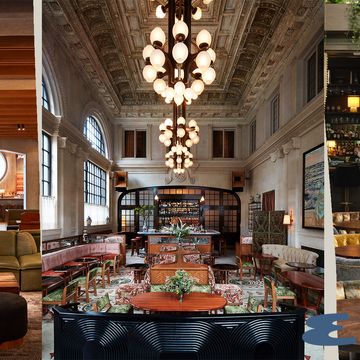
The 8 Best New Hotels in Paris
The Best New Hotels in the World 2024
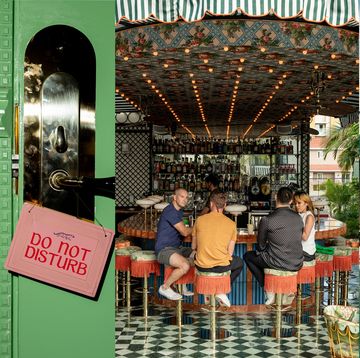
The Lafayette Is Our 2024 New Hotel of the Year
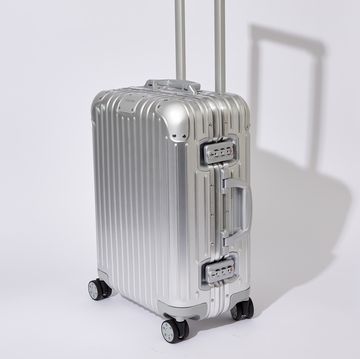
Why the Expensive Suitcase Reigns Supreme

The 6 Best New Hotels in Charleston

The Tiniest Town in Every State

Inside NYC's Most Expensive Hotel
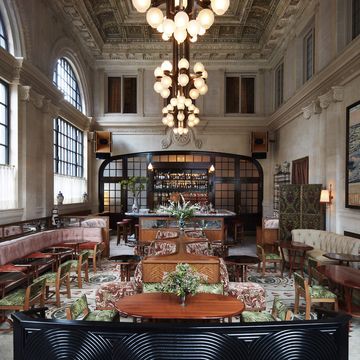
Nine Orchard Is Our 2023 New Hotel of the Year

Las Ventanas al Paraíso, A Rosewood Resort Review

Our Favorite Hotels of All Time
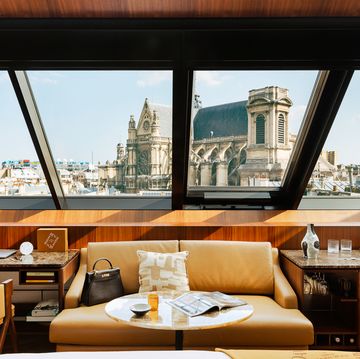
The Best New Hotels in North America and Beyond

- Get IGI Global News

- All Products
- Book Chapters
- Journal Articles
- Video Lessons
- Teaching Cases
Shortly You Will Be Redirected to Our Partner eContent Pro's Website
eContent Pro powers all IGI Global Author Services. From this website, you will be able to receive your 25% discount (automatically applied at checkout), receive a free quote, place an order, and retrieve your final documents .
What is Literary Tourism
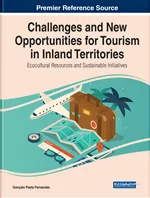
Related Books View All Books

Related Journals View All Journals
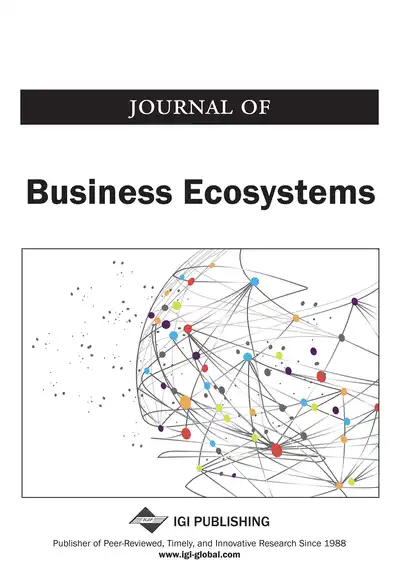

IMAGES
VIDEO
COMMENTS
Literary tourism. Literary tourism is a type of cultural tourism that deals with places and events from literary texts as well as the lives of their authors. This could include visiting particular place associated with a novel or a novelist, such as a writer's home, or grave site, following routes taken by a fictional characters, visiting ...
"Place" plays an important role for literary tourism, in particular for fiction-related literary tourism. Writers can define and redefine spaces through their works (Andersen & Robinson, 2002) and literature has the ability to reflect real space and its use (Andersen and Robinson 2002). They go on to point out that the relationship between ...
Literary tourism. Literary tourism refers to the production and consumption of places, landscapes, museums, historic houses, and graves associated with published creative writings and/or their authors. This form of tourism has a long history in literary societies but expanded in the nineteenth century with the rise of democratized travel ...
Literary tourism has a centuries long history, but as a field of academic research, its history spans just over several decades . Literary tourism, generally based on national literature and its connection with certain places, is a distinctive type of tourism that gives a visitor an insight into the historical and cultural past of a country .
Literary tourism is a nascent field in tourism studies, yet tourists often travel in the footsteps of well-known authors and stories. Providing a wide-ranging cornucopia of literary tourism topics, this book fully explores the interconnections between the written word and travel. It includes tourism stories using guidebooks, films, television and electronic media, and recognises that stories ...
Interestingly, there rarely seems to be any research on literary tourism in Asia. This does not, however, mean that literary tourism does not occur there. For example, according to Squire (1996), young Japanese women׳s interest in literary places in particular was leading to tourist travel, not domestically but to international destinations.
Literary tourism has several dimensions, being motivated by the interest concerning an author, in a literary creation or setting, or in the cultural heritage of a destination. This research concludes that it is important to understand visitor's needs, and places linked to authors or literary creations must be used to promote destinations more ...
Literary tourism, a niche within the broader spectrum of travel, offers a unique and enriching experience for book lovers and literary enthusiasts. It involves visiting places associated with literature, whether they are the settings of beloved novels, the homes of renowned authors, or the locations that inspired literary masterpieces.
Literary tourism works in much the same way. Through fiction, we map another perspective on a place over the one we are forming, in real time, through our own eyes; and we are offered the unique opportunity to observe, as we travel, how much is the same, and how much is thrillingly, intriguingly different. The Versions of Us is published by ...
Literary tourism: theories, practice and case studies edited by I. Jenkins and K. Lund, Wallingford, CABI, 2019, 210 pp., £85.00/€100.00/$120.00 (hardback), ISBN: 978-1-786-39459-. Jonathan Skinner Reader in Anthropology, University of Roehampton Correspondence [email protected]
Literary tourism is the practice of visiting cities and sites related to works of fiction and their authors. Combining literature with travel and cultural experiences, literary tourism is by no means a recent occurrence and has been practiced for several centuries. The use of electronic devices for participating in the literary tourism ...
Literary tourism is a nascent field in tourism studies, yet tourists often travel in the footsteps of well-known authors and stories. Providing a wide-ranging cornucopia of literary tourism topics, this book fully explores the interconnections between the written word and travel. It includes tourism stories using guidebooks, films, television ...
Plymouth University academic, Dr Charlie Mansfield approaches literary tourism in this book initially from an historical perspective in order to define the phenomenon through a review of the existing academic literature in the field. The forms of literary tourism are analysed to provide a typology and from this the value of literary tourism is explained both from the visitor's point of ...
Abstract. Literary tourism is a concept that praises the culture and heritage of a destination. The concept is. to go to locations around the world that have been hi ghlighted in some non ...
Literary tourism has recently moved from being a niche market to a commercially significant phenomenon. Despite the steadily growing interest, literary tourism remains under-researched in the academic world. At the same time, the preservation and management of cultural heritage has been recognized as critical for the development of sustainable ...
Literary tourism refers to travelling to not only destinations linked to writers and their works, ... respectively. The motivation of appreciating the novel is directly associated with literary tourism and has a higher mean score of 5.03. Factor 5 was labeled as "Place Attachment", encompassing the motivations of "the place stimulates ...
Literature and tourism studies are an emerging research area. Therefore, there is much to be done, as it is important to develop a theoretical body and define a methodology. ln this context, we have decided to write this book with the aim of contributing to the definition of literature and tourism studies as an autonomous scientific area.
Literary tourism is shaped by the language of the works produced and published. Some associated sites are important within a national context but largely inaccessible for tourists outside of the language. However, the pervasiveness and hegemony of the English language has privileged the literatures of the Anglophone world generating a ...
To ground literary tourism in theories of ideal presence is to locate its origins in the eighteenth century. Most historians of literary tourism, understandably, focus on the Victorian period, when such tourism had arrived as a mature industry and a cultural commonplace. 1 Nonetheless, literary tourism is a distinctly Romantic formation.
imparts new meaning to Brontë Charlotte and Haworth, attracting a large number of tourists. The construction of Haworth as a literary tourism destination not only promotes the development of local tourism but also brings visitors closer to the inner world of the Brontë sisters, making them achieve emotional resonance. 2. Constructivism
: The close relationship between literature and tourism is well-established. Literary authors and their works often attract numerous readers due to their personal influence and unique artistic conception presented in their works. Consequently, places associated with literary authors and their works frequently become desired tourist destinations for readers. Every year, numerous Brontë ...
To ground literary tourism in theories of ideal presence is to locate its origins in the eighteenth century. Most historians of literary tourism, understandably, focus on the Victorian period, when such tourism had arrived as a mature industry and a cultural commonplace. 1 Nonetheless, literary tourism is a distinctly Romantic formation. To be sure, Romantic literary tourism drew on earlier ...
Literary travel isn't "one size fits all," so whatever type of reader you are, we've got a prescription for it. Choose your own adventure below. For the fan
Chapter 1. Literary tourism is a niche of cultural and heritage tourism, and it refers to the act of travelling to visit places and landscapes associated with the presence or memory of literary authors or literary fiction representations. Published in Chapter: Reading Between the Scenes: Cinematic Representations of Literary Tourism ; From ...